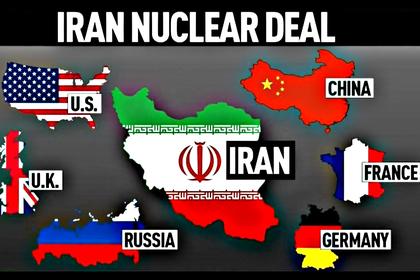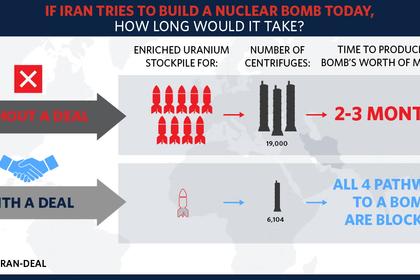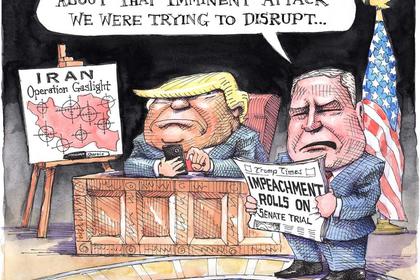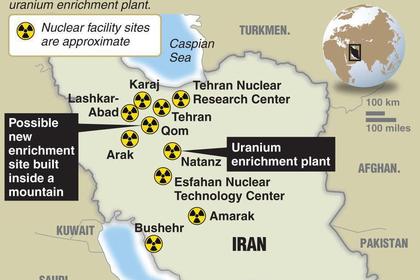
IRAN'S RECESSION
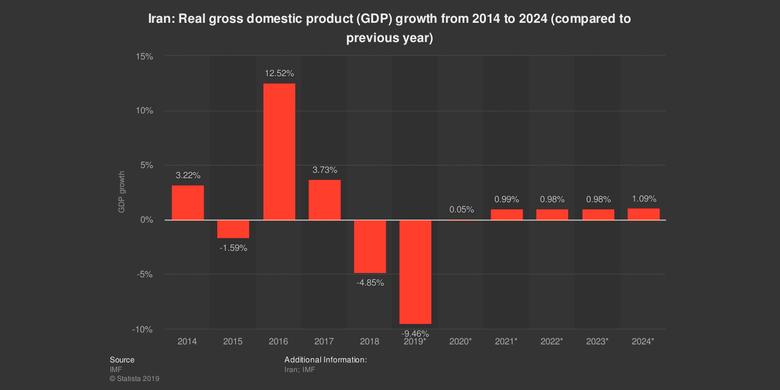
REUTERS - Hit by sanctions curbing oil sales, Iran's economy is set to fall deeper into recession this fiscal year and foreign reserves could drop to $73 billion by March, a loss of almost $40 billion in two years, the Institute of International Finance said.
The economy shrank by 4.6% in the 2018-2019 fiscal year and the contraction is expected to deepen to 7.2% in the current fiscal year, the IIF, a finance industry body, said this week.
The United States last week sanctioned 17 Iranian metal producers and mining companies in response to Iran's attack on U.S. troops in Iraq, which was retaliation for the U.S. killing of an Iranian general in a drone strike in Baghdad.
Iran is not a major metals producer but the sanctions add pressure on the economy, crippled by a decline in volume of exports of crude oil and condensates, which fell from a peak of 2.8 million barrels per day in May 2018 to less than 0.4 million barrels a day in recent months.
"The fall in imports has only partly offset the drastic decline in exports. As a result, the current account balance has shifted to a small deficit for the first time since 1998," the IIF said.
Iran saw its oil revenues surge after a 2015 nuclear pact between Tehran and world powers ended a sanctions regime imposed three years earlier over its disputed nuclear program.
But new sanctions brought in after U.S. President Donald Trump withdrew from that deal in 2018 are the most painful imposed by Washington.
"MORE RISKS THAN OPPORTUNITIES"
The IIF said that if the U.S. maintained sanctions, then "after two years of deep recession, growth would remain subdued over the medium term, unemployment rate would increase further to over 20%, and official reserves would continue their decline to about $20 billion by March 2023".
In contrast, in a scenario in which the U.S. lifts sanctions, Iran's economic growth could exceed 6% annually, with reserves resuming their rise to $143 billion and nominal GDP could double to $639 billion by March 2024, it said. The Iranian fiscal year starts in March.
"The U.S. strategy to inflict a heavy economic and political toll on the Islamic Republic through a coordinated sanctions policy is unlikely to change over the coming months," said Robert Mogielnicki, a resident scholar at the Washington-based Arab Gulf States Institute.
"With President Trump likely to remain in office through much of 2020, and potentially until 2024, the prospects for a durable agreement between the U.S. and Iran appear remote. The Iranian economy therefore confronts more risks than opportunities in the short and medium terms," he said.
A drop in the Iranian currency following the reimposition of sanctions has disrupted Iran's foreign trade and boosted annual inflation, which the International Monetary Fund has forecast will be 31% this year.
With hydrocarbon revenues falling by about 70%, Iran - a leading member of the Organization of the Petroleum Exporting Countries (OPEC) - is expected to have a fiscal deficit of around 2% of GDP in the fiscal year 2020-2021, despite higher taxes and cuts in fuel and electricity subsidies, according to the IIF.
Iran's president presented a draft state budget of about $39 billion to parliament in December, saying it was designed to resist U.S. sanctions by limiting dependence on oil exports.
The budget forecasts revenues for oil, gas and condensates falling 40%, leaving a gap it plans to plug by using state bonds and selling state properties.
-----
Earlier:
